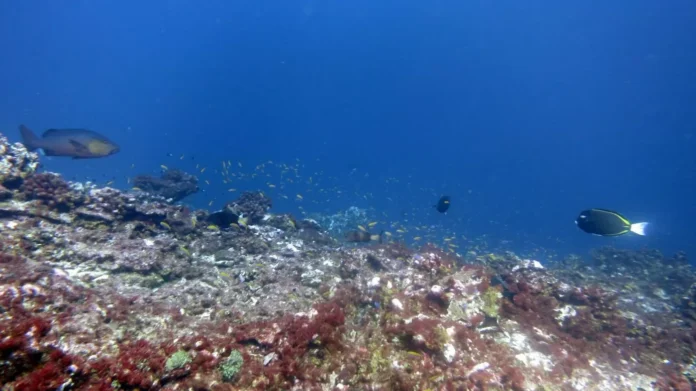The deep oceans, which cover more than 70% of our planet, have always been a source of wonder and mystery. But recent studies have revealed a concerning truth – the deep oceans have crossed a crucial boundary that threatens their ability to provide the surface with food and oxygen. This alarming discovery has raised concerns about the future of our oceans and the life they support.
According to a new study published in Global Change Biology, nearly two-thirds of the ocean below 200 meters, or 656 feet, as well as nearly half of that above, have breached “safe” levels of acidity. This is a significant increase from previous estimates and highlights the urgent need for action to protect our oceans.
Acidity, or pH levels, is a measure of the concentration of hydrogen ions in a solution. The lower the pH, the more acidic the solution is. The ocean’s pH levels have been steadily decreasing due to the absorption of carbon dioxide from the atmosphere. This process, known as ocean acidification, is caused by human activities such as burning fossil fuels and deforestation.
The consequences of ocean acidification are far-reaching and devastating. It not only affects the marine life but also has a ripple effect on the entire ecosystem. The ocean is home to a diverse range of species, from tiny plankton to large whales, and each one plays a crucial role in maintaining the balance of the marine ecosystem. As the ocean becomes more acidic, it becomes harder for these organisms to survive and thrive.
One of the most significant impacts of ocean acidification is on shell-forming organisms such as corals, mollusks, and crustaceans. These creatures rely on calcium carbonate to build their shells and skeletons, but as the ocean becomes more acidic, this compound becomes harder to obtain. This can lead to weaker shells, making them more vulnerable to predators and other environmental stressors.
But it’s not just the marine life that is at risk. The ocean also plays a vital role in regulating the Earth’s climate. It absorbs a significant amount of carbon dioxide from the atmosphere, acting as a natural buffer against climate change. However, as the ocean becomes more acidic, it becomes less effective at absorbing carbon dioxide, which can lead to an increase in atmospheric levels of this greenhouse gas.
The new study’s findings are a wake-up call for all of us. It’s a stark reminder that our actions have consequences, and we must take responsibility for our impact on the environment. The good news is that there is still time to reverse the damage and protect our oceans.
One of the most effective ways to combat ocean acidification is by reducing our carbon footprint. This means reducing our reliance on fossil fuels and transitioning to renewable energy sources. Governments and industries must work together to implement policies and practices that promote sustainable living and reduce carbon emissions.
Individual actions can also make a significant difference. Simple changes like using public transportation, reducing meat consumption, and properly disposing of waste can all contribute to reducing our carbon footprint. We must also support organizations and initiatives that are working towards protecting our oceans and promoting sustainable practices.
Another crucial step is to increase our understanding of ocean acidification and its impacts. The more we know, the better equipped we will be to find solutions and make informed decisions. This requires investment in research and education, as well as promoting awareness among the general public.
The deep oceans are a vital part of our planet, and we cannot afford to neglect their health. The new study’s findings serve as a warning that we must act now to protect our oceans and the life they support. We have the power to make a positive change and ensure a healthy future for our oceans and ourselves.
In conclusion, the deep oceans have crossed a crucial boundary, and it’s up to us to bring them back to a safe and healthy state. We must take immediate action to reduce our carbon footprint, increase our understanding of ocean acidification, and support initiatives that promote sustainable practices. Let’s work together to protect our oceans and preserve them for future generations.

